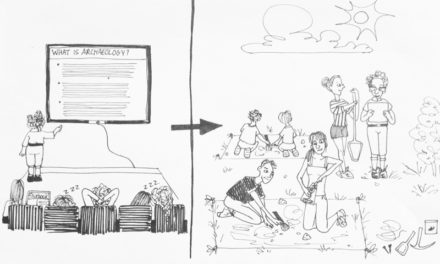Imagine a place filled with all that is naturally beautiful. This place flourishes because of the bright flowers, deep green trees and wild birds that surround it. It is a place where inner peace and serenity are actually attainable, not just abstract, utopian concepts. This place is called the Memphis Botanical Gardens.
I never really thought I would enjoy a trip that consisted of volunteering with a lot of people I didn’t really know. Things like that were awkward and hard for me. But for some reason, I decided to attend this trip, mainly because I wanted to leave a monotonous Emory to see a more exciting nature.
A group, plus me, went to Memphis, Tennessee and volunteered at the beautiful botanical garden located there. It was filled with various plants and flowers that depicted the roots of Asian art and culture. The pond in the middle of the garden sparkled as the blazing sun hit it, illuminating the already bright sky. The woods were filled with different plant species and even the day it rained, the muddy earth beneath our feet made me feel more in touch with Mother Nature than ever. This place was one of the most beautiful places I have ever seen.
The reason we were volunteering there was because they needed help with uprooting trees and invasive species. We even had the chance to pick up the chestnuts and black pecans that were sprinkled around the tree from which they originated. It did look kind of weird that we were pulling out nature rather than growing it, but that’s beside the point (utilitarianism, I suppose).
The beauty that surrounded us made me realize the frivolity of material things like technology. I understand the practicality of owning something like a laptop or a cell phone, but I’m talking more in the idealistic sense. Being able to walk around in a labyrinth of trees really makes you think and focus on what is right in front of you. At least that’s what I did. I feel as if I experienced some kind of transcendental revelation where I really want the whole world to understand what I’m saying, but at the same time it’s one of those things that’s hard to put into context if you weren’t actually there. Regardless, being in the outdoors really had a heavy effect on me and made me re-analyze what modern society stands for.
I feel like technological advances have subsumed our youth. Rather than being fascinated with all that is natural and real, many feel the need to constantly check how many Facebook likes their new profile picture got. Focusing on those kinds of materialistic goals really blind us from what is actually important. We would be nowhere without the nature that surrounds us; that kind of beauty is a pre-requisite to the superficial beauty many are so obsessed with today.
As humans, we have intellectual capabilities that can be used either to advance society in a positive way or a negative one. We should use those capabilities to take a step back and admire what is in front of our eyes, rather than trying to constantly advance the objects we have constructed.
I really admire Henry David Thoreau for his solitary time in Walden Pond. It makes me wonder what kind of character development and self-actualization can occur when we become isolated from human-made things.
Everyone, at some point, should drop everything they have (yes, that includes your cell phones) and spend a little time outdoors. You won’t believe the kinds of revelations that happen when all you have is your mind and the beauty that lies before your eyes. Thoreau said he went to the woods to live deliberately. We went to the woods to live deliberately, too.
Asst. Editorials Editor Priyanka Krishnamurthy is a College sophomore from Coppell, Texas.
The Emory Wheel was founded in 1919 and is currently the only independent, student-run newspaper of Emory University. The Wheel publishes weekly on Wednesdays during the academic year, except during University holidays and scheduled publication intermissions.
The Wheel is financially and editorially independent from the University. All of its content is generated by the Wheel’s more than 100 student staff members and contributing writers, and its printing costs are covered by profits from self-generated advertising sales.





